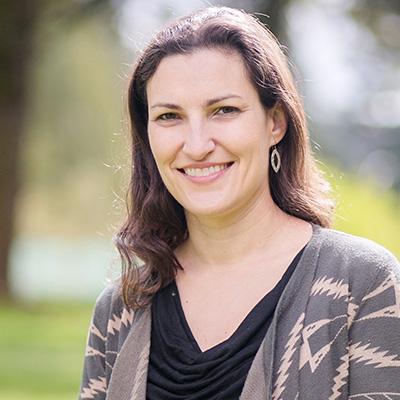Jessica Metcalfe, of the Laboratory of Archaeology in the Department of Anthropology, is a recipient of a 2015-2016 Banting Postdoctoral Fellowship. Her research uses isotopic techniques to examine bison remains at the Promotory Caves site in Utah. Her goal is to better understand the interaction between bison and humans during the Athapaskan migration from the Canadian Subarctic to the American Southwest in the 13th century.

Research topic
Research Description
My SSHRC Banting postdoctoral fellowship (2016-2018) will use isotopic techniques to study human-bison interactions and environmental change at the Promontory Caves (Utah), an important archaeological site that has provided evidence for Aboriginal migration from the Canadian Subarctic to the American Southwest.
This project will first examine the processes that influence the isotopic compositions of modern bison, and then apply that knowledge to interpreting the incredibly well preserved Promontory bison remains.
Did Promontory people engage in long-distance scouting? Did they hunt bison at Promontory year-round, or only in specific seasons? Was the climate warm and wet, or did the late-13th century droughts affect the bison populations and Promontory people?
The answers to these questions will help us understand how, when, and why Athapaskan people engaged in one of the greatest migrations in North American prehistory, and will provide information that can be used to contextualize modern environmental change and human/animal responses.
The environmental knowledge of Promontory people will be interpreted in the light of Athapaskan/Dene understandings of the environment documented in the historical and anthropological literature.
This project will improve our understanding of the connectedness of Canadian and American prehistory, facilitate engagement of Northern and Southern Aboriginal groups with their shared history, and inform modern bison conservation efforts.
Why did you decide to pursue a postdoctoral fellowship at UBC? Did you consider other opportunities?
I chose to do postdoctoral research at UBC because of a happy alignment of personal and professional circumstances. After spending 8 years in Ontario and having our first child there, my husband and I were on the lookout for an opportunity to return to the Lower Mainland, so our son could get to know his grandparents. Fortunately, one of the world experts in isotopic applications to anthropology, Dr. Michael Richards, was based at UBC.
Initially, I received a Killam Postdoctoral Fellowship to work with Dr. Richards, and subsequently was awarded a SSHRC Banting Postdoctoral Fellowship to start a new project in his lab. Very recently, Dr. Richards accepted a new position at SFU and left UBC, but his state-of-the-art laboratory facilities remain under the direction of the Laboratory of Archaeology.
The Department of Anthropology and my new supervisor, Dr. Michael Blake, have been very supportive in the continuation of my Banting research at UBC.
What advice do you have for new postdoctoral fellows?
Try to take some time to explore this great land.
What does receiving this award mean for your career?
The SSHRC Banting Postdoctoral Fellowship is an incredible honour. It has allowed me to conduct my research within a fantastic institution, and I am very grateful.
For you, what was the best surprise about UBC or life in Vancouver?
Since I grew up in North Vancouver and attended UBC during my undergrad, I already knew all the great things about life in Vancouver.